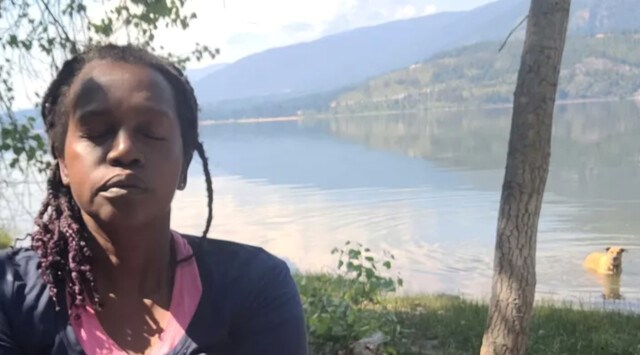A Kamloops woman who has fought through homelessness says she was accepted into medical school, but now can’t afford the astronomical cost.
Nyasha Katedza, a medical laboratory assistant, said she’s to raise funds to afford expenses to attend Western Atlantic University School of Medicine in the Caribbean.
Katedza’s goal is to raise $300,000 for four years of schooling, covering tuition, moving and housing costs.
She said she completed her medical laboratory assistant program in 2020 and has been working in Kamloops since.
“It's something I've wanted to do for a long time, but it seemed impossible. It seemed out of reach for someone like me,” Katedza said.
“When I did my medical laboratory assistant course, I realized, why don't I go to med school? Why don’t I finish what I want to do?”
Katedza said she always thought medical school was only for people from wealthy backgrounds, because the costs is so “astronomical.”
“I think there's a lot of talk now about diversity, inclusion, and that's kind of helping open up the doors a little bit,” Katedza said.
Before moving to Canada, Katedza said she spent many years homeless in the United States, travelling across the country from New York and eventually making her way to the West Coast.
“My way of changing it was to just really get up from where I was and start walking. I literally walked my way out of homelessness,” Katedza said.
She said she eventually immigrated to Canada from San Francisco, spending many years in the immigration system.
Katedza said she has the “standard, general immigrant story,” having to face numerous barriers and working odd jobs to make ends meet throughout the process.
“There are people who get here and then two years they have their citizenship and things like that. For me, it's been a battle,” Katedza said.
“I spent almost 12 years in the general immigration system, the back and forth back and forth. I had my work permits and all that stuff, but it can be a really brutal system.”
Katedza said Canada generally has a reputation of being inclusive and welcoming, but she was dismayed at the lack of diversity which came out in “very negative ways.”
“Because there's a lack of diversity in a lot of workplaces, and since I'm a woman of color, a black woman,” Katedza said. “I’m already dealing with these negative stereotypes.”
“A lot of people don't take the time to get to know you, you're just the outsider, and they treat you like the other and the outsider.”
Katedza said she began the medical laboratory assistant program at Camosun College as a mature student in Victoria in 2019.
She said she paid out-of-pocket to take the MCAT and for the studying material, eventually completing the exam and applying to different medical schools before being accepted into Western Atlantic.
Katedza said people who have been homeless are constantly dealing with barriers, as when she found herself falling into a “negative housing situation” while studying in Victoria.
“When you're going into a new place, and you really don't know the areas and the places, you're vulnerable to falling into the wrong situations,” she said.
“If you've never been homeless, I think a lot of people will tell you this — they're constantly constantly dealing with barriers, because it's almost like you've had 30 years of being housed and you're homeless for two years, you're defined by that very minute time you were homeless.”




